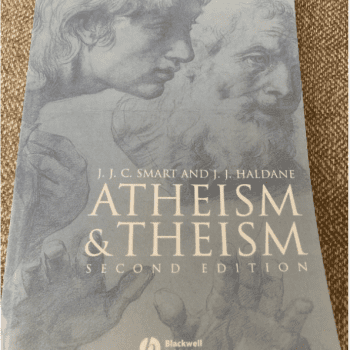That is the title of an article that will be published in tomorrow’s New York Times (14 March 2011). Authored by Mark Oppenheimer, here’s how it begins:
According to one cynical view, academic disputes are so vicious only because the stakes are so low. Yet as the editors of Synthese, a leading philosophy journal, can tell you, what they publish matters: in debates over Christianity, the teaching of evolution, and American politics. This story began in March 2009, when a special issue of Synthese was published online, titled “Evolution and Its Rivals.”
It was guest-edited by Glenn Branch, deputy director of the National Center for Science Education, and James H. Fetzer, a former editor of the journal. They included an essay by Barbara Forrest, of Southeastern Louisiana University, condemning the work of the philosopher Francis J. Beckwith, who believes it is constitutionally permissible, although not advisable, to teach intelligent design in public schools.
But Dr. Beckwith says he is no ally of the intelligent design movement, whose mainly Christian proponents argue that certain features of the universe are best explained by a “designer,” perhaps a god or deity, rather than by natural selection or other scientific theories.
Here are previous Return to Rome posts that touch on my Synthese article as well as attendant issues.
- Or We Can Be Philosophers: A Response to Barbara Forrest (8 March 2011)
- Intelligent Design, Thomas Aquinas, and the Ubiquity of Final Causes: Why I Reject ID (2 April 2011)
- The Scandal of Being a Christian, or in the words of the immortal Frank Sinatra…. (12 April 2011)
- St. Thomas Aquinas and the Inadequacy of Intelligent Design (15 April 2011)
- Synthese Disclaimer Published (14 April 2011)
- Res ipsa loquitur (13 May 2011)












